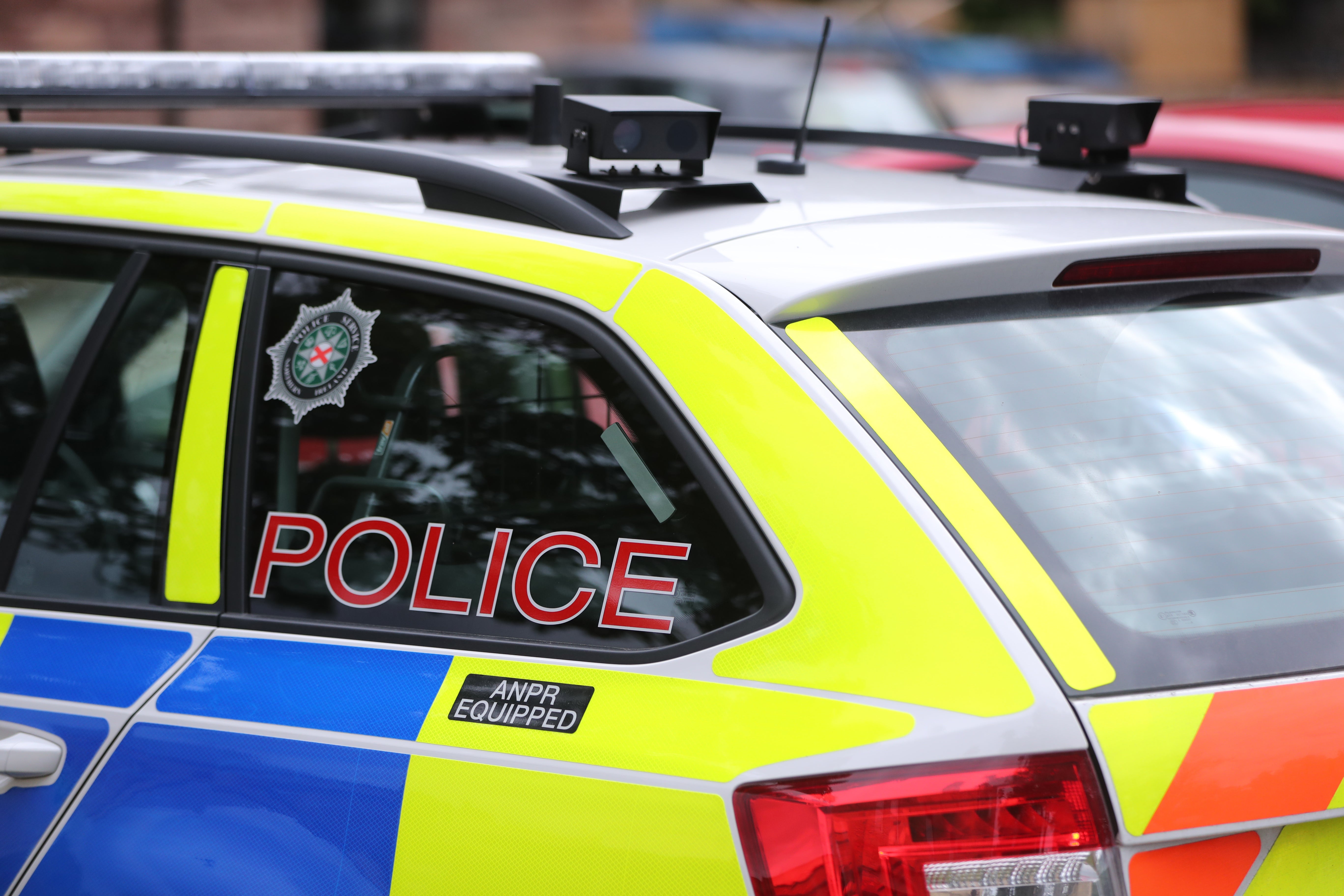Use of spit and bite guards to be made permanent in Northern Ireland policing
The move comes despite opposition from four groups including Amnesty International and the Children’s Law Centre.

The use of spit and bite guards is to be made permanent in frontline policing in Northern Ireland.
The mesh hoods were temporarily introduced in March 2020 as an emergency measure during the coronavirus pandemic.
They were initially used in custody suites before being more widely issued to officers across frontline policing by the end of 2020.
Their use has been opposed by human rights groups and children’s charities.
However, the Police Federation welcomed the decision, describing spit and bite guards as “an essential and badly needed protection for officers”.
On Thursday, Assistant Chief Constable Chris Todd confirmed a decision had been taken to adopt spit and bite guards as a permanent tactic following a “considerable period of consultation, engagement and assessment”.
He said police are aware of concerns but said it “remains the only option when attempts at de-escalation have proved unsuccessful”.
Amnesty International, Children’s Law Centre, the Committee on the Administration of Justice and Include Youth say their continued use may be in breach of equality legislation and therefore be unlawful.
They have also claimed the PSNI has refused to publish findings following a public consultation.
They contend that previous equality screening data from police shows a “disproportionate use” of on people with disabilities and on people from a Catholic community background.
According to PSNI data, between March 16 and December 31, 2020, spit and bite guards were used 84 times; 81% against people with a disability, including a mental health disability; and 48% against people from a Catholic community background compared to 20% against people from a Protestant community background.
They were used 16 times on people under the age of 18 between Match 16 2020 and November 11 2021, according to a response to a freedom of information act request by the Children’s Law Centre.
We believe their ongoing use is unlawful as well as being in breach of human rights obligation
Patrick Corrigan, Northern Ireland Programme Director of Amnesty International, claimed the decision to introduce the use of spit and bite guards was “rushed” with “zero evidence that they prevent the transmission of Covid-19”.
“The police have not met the threshold for the necessity and proportionality for this type of use of force. Given serious concerns around potentially dangerous physical and mental health impacts, particularly on vulnerable groups, spit hoods should be withdrawn from use,” he said.
Paddy Kelly, director of the Children’s Law Centre, said her organisation is extremely concerned around the use on children.
“We believe their ongoing use is unlawful as well as being in breach of human rights obligations,” she said.
“Their use on children is even more concerning given that children who come in contact with police are more likely to have a disability, mental ill-health or a learning disability.
“It is unclear how a police officer using a spit hood on a child can know if a child has a learning disability or suffers from serious mental ill health. Indeed, early analysis shows that protected groups are more likely to be adversely impacted by the practice. Their use should cease immediately.”
The Police Service is committed to a human rights based approach in everything we do and we take our obligations to local communities and our officers and staff very seriously.
Responding, ACC Todd said: “After a considerable period of consultation, engagement and assessment, the chief constable has confirmed to the Northern Ireland Policing Board the decision of the Police Service’s Strategic Management Board to adopt spit and bite guards as a permanent tactic for all frontline officers.
“We are acutely aware of the concerns that have been raised by the use of spit and bite guards. However, in the absence of an appropriate tactical option to deal with assaults by spitting or biting, physical restraint remains the only option when attempts at de-escalation have proved unsuccessful. In this respect, our assessment is that the continued use of spit and bite guards offers the least injurious method of dealing with these egregious forms of assault.
“The Police Service is committed to a human rights based approach in everything we do and we take our obligations to local communities and our officers and staff very seriously.
“We have undertaken a comprehensive Equality Impact Assessment, which we intend to publish in the near future, and we have developed extensive training and operational guidance for our officers in line with advice from the Northern Ireland Policing Board’s Human Rights Advisor and the Police Ombudsman.
“We also have a robust governance and accountability mechanisms in place to monitor the use of spit and bite guards, including a Performance Accountability Framework, and their use will be the subject of ongoing assessment.”
Police Federation chairman Liam Kelly welcomed the decision.
“Too often, officers have had to cope with the revolting, vile and dangerous practice of being spat at during incidents. Similarly, officers have been bitten by individuals as they resisted arrest or were confronting officers,” he said.
“The use of spit and bite guards fully complies with human rights obligations and fulfils the PSNI’s responsibilities to do all it can to protect the health, safety and welfare of officers,” he said.
“This decision makes sense. It offers an additional safeguard and protection for officers as they go about their everyday policing duties.
“Spit and bite guards also gives reassurance to officers. Although the decision to make them a permanent piece of frontline officer equipment has taken an unnecessarily long time, it is heartening that we have finally reached a sensible and practical outcome.”
Bookmark popover
Removed from bookmarks